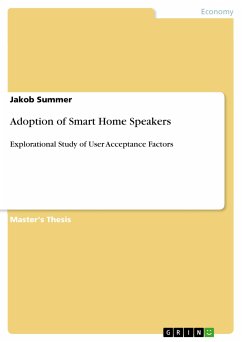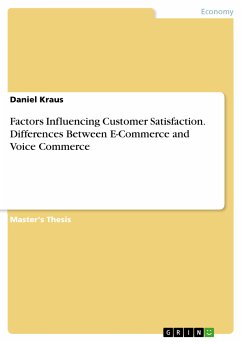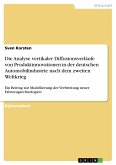Master's Thesis from the year 2021 in the subject Business economics - General, grade: 1.00, Management Center Innsbruck (Management Center Innsbruck), language: English, abstract: Due to technological progress, smart speakers have entered the market in recent years and have already been adopted by certain parts of the population. Although several studies have tried to explain the crucial factors for smart speaker adoption, there is still no common understanding and there are significant gaps in the literature analysing the adoption of smart speakers at their current technical level in specific countries. Therefore, this study aims to identify factors influencing the intention to use smart speakers in Germany. By reviewing the literature on innovation acceptance with an emphasis upon adoption studies of voice-controlled technologies, the research model of this thesis was developed. The hypothesized effects of the twelve constructs in the model were tested using an online survey with questionnaires as data collection instruments among 233 German non-adopters. The study found that certain constructs specifically enjoyment, privacy concerns, usefulness and social influence were significant predictors of intention to use. System quality and smart speaker complementarity with apps and services additionally emerged as predictors of perceived usefulness. Results suggest that companies should pay particular attention to these factors when marketing and further developing smart speakers. The factors identified might further influence the acceptance of similar IT products.
Dieser Download kann aus rechtlichen Gründen nur mit Rechnungsadresse in A, B, BG, CY, CZ, D, DK, EW, E, FIN, F, GR, HR, H, IRL, I, LT, L, LR, M, NL, PL, P, R, S, SLO, SK ausgeliefert werden.









